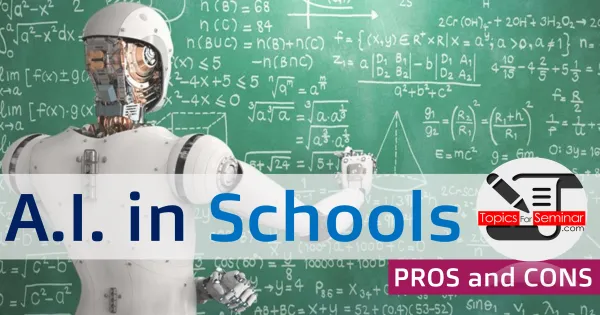AI has the potential to transform the way students learn and teachers teach, providing personalized feedback and recommendations that can lead to a more engaging and effective learning experience. Incorporating AI into the classroom can help students get back on track faster by alerting teachers to problems that may not be visible to the naked eye. However, there are valid concerns regarding the ethical implications of AI in education, particularly around issues such as privacy and accountability.
Artificial Intelligence (AI) in Schools
Educators recognize that AI can automatically produce output that is inappropriate or wrong and may amplify unwanted biases. Therefore, it is crucial to approach AI in education with caution, committing to extensive research and due diligence to ensure that systems are fair, transparent, and accountable. Currently, Chatbots, Virtual Reality (VR) and Learning Management Systems (LMS) are three major AI technologies that are being widely used by students and teachers. Some examples of AI tools that are being used in schools include ClassPoint AI, QuillBot, Altitude Learning, Gradescope, Knowji, Canva, ChatGPT, Yippity, and Copilot. These tools can help teachers generate questions, streamline the writing and editing process, generate quizzes, and provide personalized learning opportunities.
Below are a few key topics that must be thoroughly researched, to understand the potential of using AI in schools:
Below are a few key topics that must be thoroughly researched, to understand the potential of using AI in schools:
- AI-enabled learning
- Personalized education
- Adaptive learning systems
- AI-powered classrooms
- Smart tutoring systems
- Virtual teaching assistants
- Automated grading
- AI-based assessments
- Intelligent educational technology
- Data-driven teaching methods
- Enhanced student engagement
- Predictive analytics in education
- AI-driven curriculum design
- Gamification in learning
- Augmented reality in education
- Machine learning for student support
- AI-driven personalized feedback
- Interactive learning environments
- Smart educational platforms
- Digital learning assistants
While AI tools can be helpful, it's important to approach AI in education with caution and proper consideration of the potential benefits and challenges. In this PowerPoint presentation, we have briefly discussed the pros and cons of using AI in schools and how it affects students as well as teachers.


0 comments